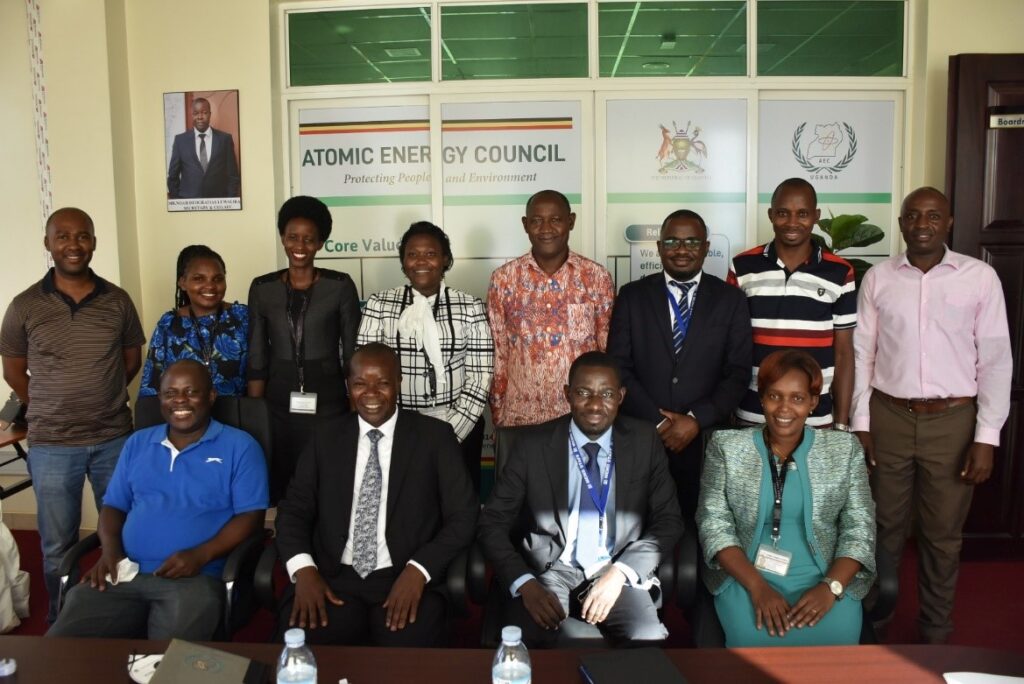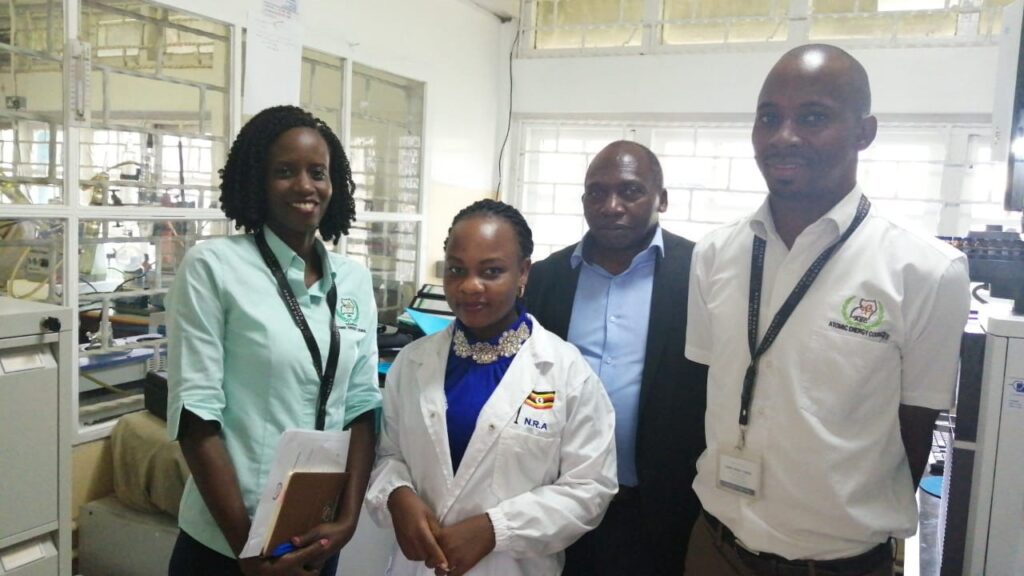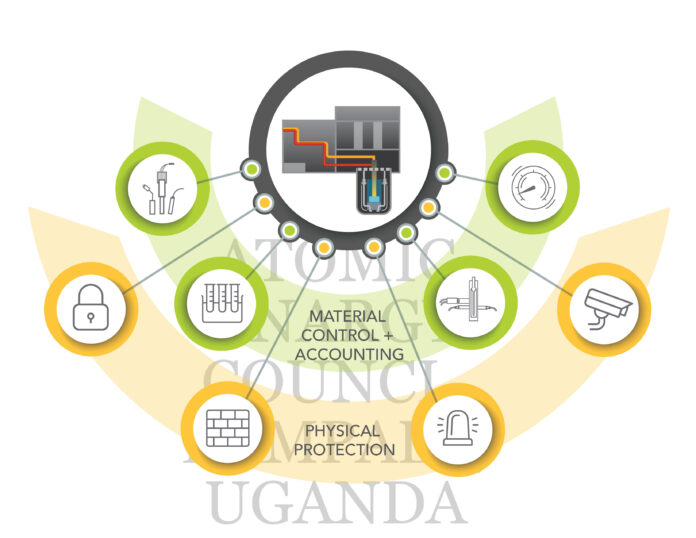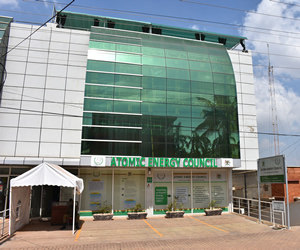Introduction
Nuclear technology can be used for a number of peaceful purposes, ranging from generating electric power to producing radioisotopes for medical diagnosis, cancer treatment and research. Despite its several uses, it poses a unique risk, including the possibility of misuse in developing nuclear weapons. According to the Treaty on Non-Proliferation of Nuclear Weapons, nuclear materials are supposed to be used for only peaceful purposes. However, with the increasing threat of nuclear terrorism, the use of these materials for non-peaceful purposes is probable. Therefore, there is a need to account and control nuclear materials regardless of their quantities, wherever they are. Nuclear material accounting and control involves physical verification and inventory taking of the nuclear material, and putting in place measures or systems to protect the nuclear material from misuse both on and away from the site.
Uganda became a member of the International Atomic Energy Agency (IAEA) in 1967. It signed the Non – Proliferation Treaty on October 20, 1982, and the Comprehensive Safeguards Agreements on May 25, 2006. Under these agreements, Uganda is obliged to, among other requirements, establish a State System of Accounting for and Control of Nuclear Material and report on nuclear material in the country on a quarterly and annual basis.
Safeguards implementation in Uganda
Safeguards are a set of technical measures that allow the IAEA to independently verify a State’s legal commitment not to divert nuclear material from peaceful nuclear activities to nuclear weapons or other nuclear explosive devices. Pursuant to the IAEA’s Statute, which authorizes the IAEA to establish and administer safeguards, States accept the application of such measures through the conclusion of safeguards agreements with the IAEA.
According to article 2(a)(iii) of the Safeguards Agreement that Uganda concluded with the IAEA, all nuclear material regardless of the quantities must be declared. The Atomic Energy Act No. 24 of 2008 established the Atomic Energy Council (AEC) as a body corporate with the mandate of regulating the peaceful use of ionizing radiation in Uganda for the protection and safety of individuals, society and the environment. Uganda, through the Atomic Energy Council as the designated authority, has the responsibility of reporting information regarding nuclear material in the country to the Agency. This information is collected from the stakeholders who utilize nuclear material in their applications.
In Uganda, small quantities of nuclear material (depleted uranium) are used as shielding materials for devices/equipment housing radioactive sources used in the medical and industrial fields.
Some of the materials that fall under Safeguards include;
- Plutonium -239
- Uranium – 233 and 235
- Source material (natural Uranium, depleted Uranium and Thorium)
- Uranium and Thorium ore concentrates
Some of the material that is not under Safeguards is;
- thorium in lantern mantles, welding rods, light bulbs, lenses or optical components, and electronic components
- natural uranium, depleted uranium or thorium as a minor constituent in an alloy which is not being used for its nuclear properties.
- natural uranium, depleted uranium or thorium used as a colorant, pigment, stain or glaze
- nuclear material as contamination at activity concentrations equal to or less than the exemption quantities
In a bid to ensure that the nuclear material is not diverted for non-peaceful purposes, AEC received some inspectors from the IAEA from May 12-13, 2022, to conduct independent safeguards inspections and verify the physical inventory of the small quantities of nuclear material in the country located at some facilities.

Relatedly, AEC conducts periodic inspections at facilities where nuclear material is suspected to be applied like in research institutions, laboratories and universities across the country. The objective is to verify and establish the quantities of nuclear materials present at these institutions and the purpose of use to ensure compliance with the Safeguards agreements.

Conclusion
The implementation of safeguards by all States would, in the long run, result in the application of nuclear material in peaceful activities and thus promote a global nuclear non-proliferation regime. Therefore, all persons/entities/institutions that could be using nuclear material in their operations should notify the Atomic Energy Council for inventory change as per the safeguards agreement.
Report a Radiation Incident
If you suspect that an incident or an accident may have involved a radioactive material, please report to the nearest police station and to the Atomic Energy Council on the contacts provided below. Stay as far away from the scene of the incident as possible.
Atomic Energy Council, Plot 40, Bukoto Street, P.O Box 7044, Kampala. Tel: +256-417 101700 Toll free: 0800100488 Website: www. atomiccouncil.go.ug Email: admin@atomiccouncil.go.ug





